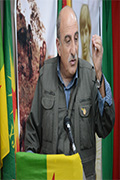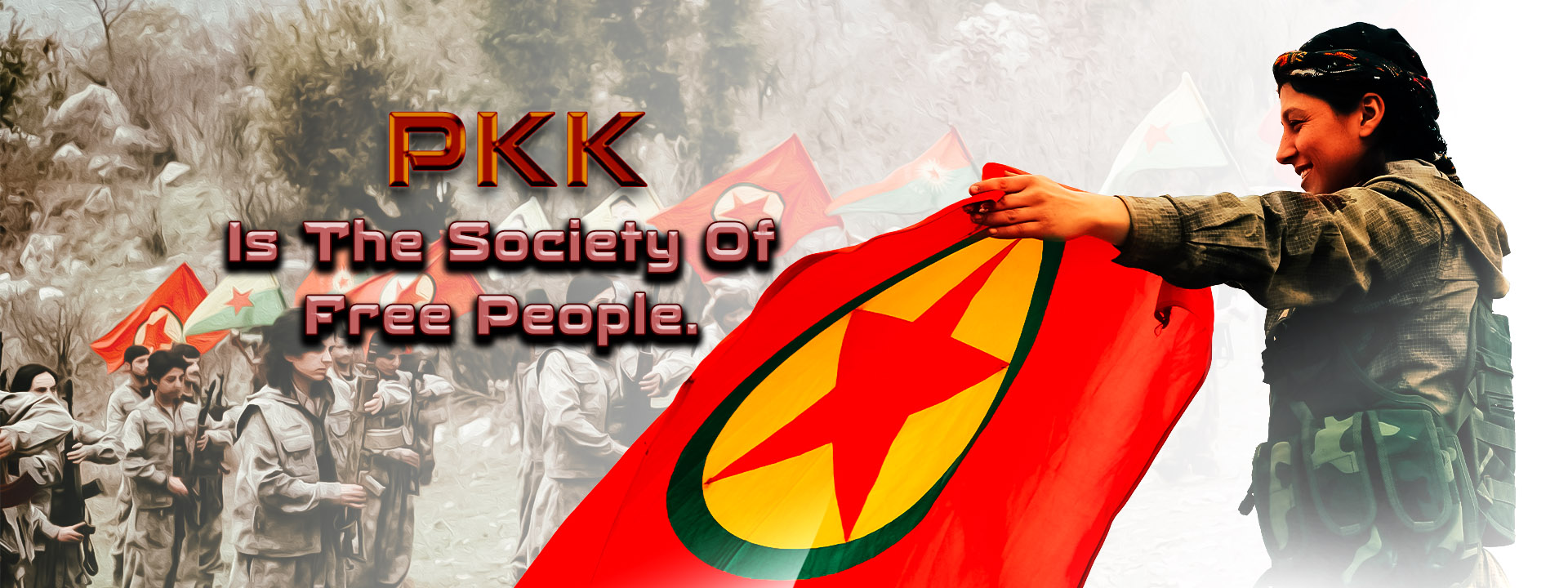 The Kurds are an archaic society from the depths of history. They are known as the co-creators of the Neolithic Revolution; creators of the agricultural-village communities. They are representatives of a matriarchal social life. Due to these traits, societal characteristics are well developed among the Kurdish people.
The Kurds are an archaic society from the depths of history. They are known as the co-creators of the Neolithic Revolution; creators of the agricultural-village communities. They are representatives of a matriarchal social life. Due to these traits, societal characteristics are well developed among the Kurdish people.
The foundations of Kurdish democracy are rooted in its historical context. Therefore, the Kurds are intrinsically equipped with an understanding of freedom and equality based on differences. Political and ethical principles are structural components of historical societies. Therefore, Kurdish society, based on an understanding of freedom and equality of differences, is a political and ethical society.
This is the reason why for thousands of years the Kurds have been able to bring themselves to where they are today despite numerous attacks on its very existence. It is entrenched with such a democratic culture that until this day Kurdish society has largely protected itself from denominational classification. At the same time, the Kurds have been able to resist against the attacks of external states and power structures.
This is the resource field of the 30-year-long Kurdish freedom struggle. On this platform, Kurdish democratic societal characteristics and the freedom struggle have conjugated. The conceptual expression of this is the democratic, ecological and gender liberationist paradigm developed by the Kurdish people's leader Abdullah Ocalan; or in other words, the democratic modernity theorem.
The Kurds are presently equipped with a political stance that is harmonious with their historical background. Today, in Northern Kurdistan, the Kurds have attained a high level of internal freedom and democracy. In Rojava Kurdistan, this is being embodied day by day in what can only be described as a historical revolution.
The developments in Northern and Western Kurdistan have a deep impact on the developments in Southern and Eastern Kurdistan. The quest for a solution to the Kurdish Question is being developed along the lines of democratic society, rather than that of a statist paradigm.
In short, Kurdish democracy lies within a societal paradigm; not a statist paradigm. This reality is completely coherent with Kurdish historical society. The expression of this is the unification of communities at a grassroots level. Kurdish democracy is the product of the labouring lower classes, rather than the statist higher classes.
It is exactly this that has been on the receiving end of arduous attacks for the past four hundred years by advocates of elitism and statism. Currently, these attacks are politicised and spearheaded by the administration in Southern Kurdistan who are impeding the development of a Kurdistan wide push for democracy.
The Kurdistan Regional Government - specifically the KDP - is a hindrance to the development of the democratic, ecological and gender liberationist paradigm in all parts of Kurdistan and a wider democratic national unity. This is why the planned national congress is yet to materialise and is also why the KDP is antagonistic towards the Rojava Revolution to the extent of digging trenches along its border with Rojava.
The KDP, as an offset of the global state system and that of capitalist modernity, with its nationalist and statist character is in pursuit of complete sovereignty and hegemony. Along with the support it gets from regional and global hegemonic powers, the KDP is hoping to establish its sovereignty in Kurdistan by blocking any strides towards a Kurdish democratic nation.
The developments in South Kurdistan should be analysed within this context. Although it is widely advertised by the capitalist system as the "free part of Kurdistan", it is abundantly clear that this is only a freedom to suppress, and under the name of freedom, the resources of Kurdistan are being pillaged. In this part, democratisation is not developing. Due to an intense bargaining for power, a new government has not been able to be formed for months.
This is also a major source of the conflicts between the administrations of Baghdad and Arbil. Off course, the nationalism and sectarianism of the Maliki administration is also a source of this conflict. However, it is not the only source. The Barzani administration in Arbil is as responsible as the Maliki administration for this conflict. Arbil is trying to overcome its loneliness through policies of conflict with the Iraqi central government.
It will be beneficial to reanalyse the internal struggles in Kurdish politics within this new framework. Only through such a context can we really understand what the KDP is attempting to do.
Both the Kurdish public domain and international observers are asking the same questions: "although the circumstances are ripe and opportunities have arisen, why are the Kurds unable to unify and organise their national congress? Why is the Arbil administration antagonistic towards the Rojava Revolution? Why are KDP affiliated organisations in all parts of Kurdistan divisive agents for Kurdish unity? How come the AKP can easily join forces with the AKP, but is yet to come together with other Kurdish parties and organisations?"
The answer to these questions become very clear when we look at them through the perspective I have outlined above. The KDP's political stance is contradictory to that of the realities of Kurdish historical society. Rather than representing the realities and values of Kurdish historical society, the KDP is representing the values of the global statist system. This is why the Democracy it beholds in its name remains a mere word, unable to unify with Kurdish democracy.
So, despite the negative stance of the KDP and its affiliates, the historically backed development of Kurdish democracy is gaining strength. In North Kurdistan, despite the intense suppression and cheating of the AKP government, the Kurdistan freedom struggle is also consistently gaining strength and constructing a democratic society.
The people of Rojava Kurdistan are maintaining their epic struggle for the construction of a democratic society; the construction of a democratic nation is being carried out in parallel with their heroic resistance against Al-Qaeda affiliated gangs. The enlightening developments in Rojava Kurdistan are coherent with the democratic values of Kurdish culture and history.
The effects of this democratic development will spread to Eastern and Southern Kurdistan. Kurdish democracy will spread and materialise throughout Kurdistan. This will ensure the Kurdish people as the true frontrunners of democracy for all of humanity.
Duran Kalkan - Member of the Executive Committee of the PKK
http://kurdishquestion.com/component/k2/kurdish-democracy-by-duran-kalkan.html



